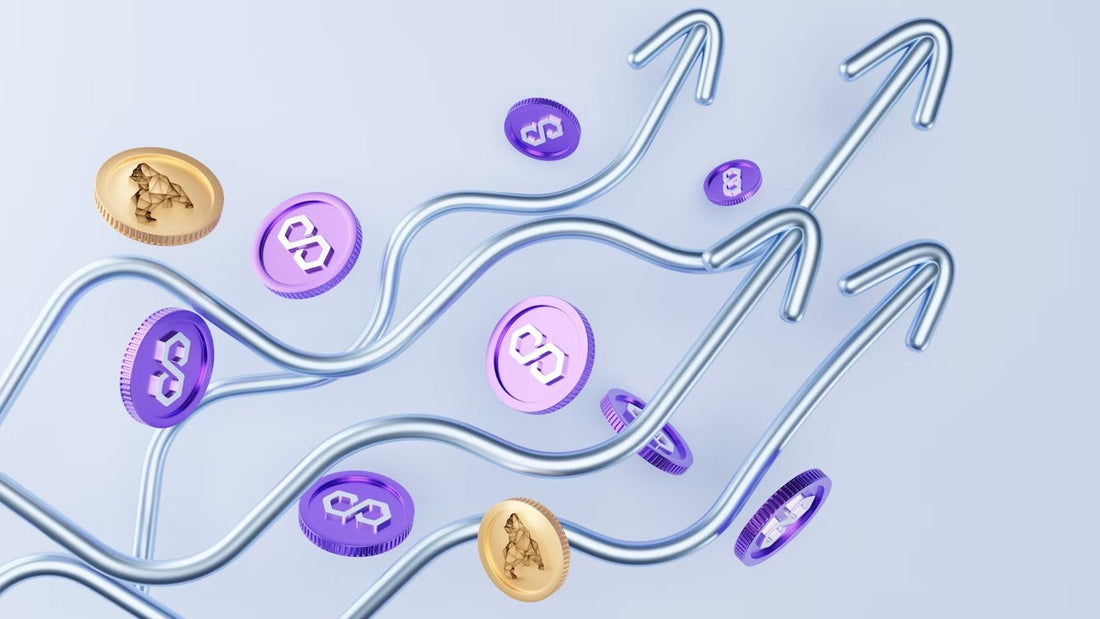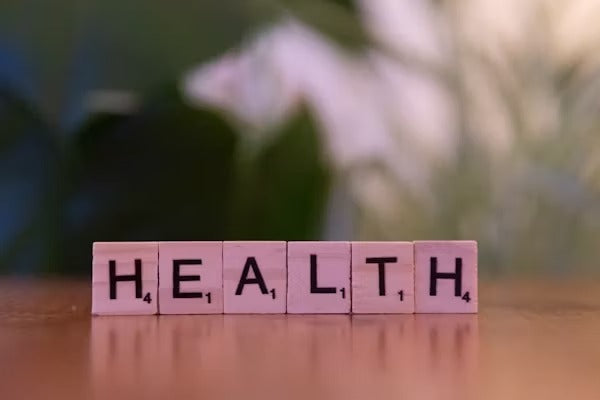For many women (and couples) trying to conceive, fertility can feel like a mystery marred by questions and anxiety. While age, lifestyle, and health are often talked about, one silent factor plays a critical role: oxidative stress.
Oxidative stress occurs when our bodies produce too many reactive oxygen species (ROS) and don’t have enough antioxidants to neutralize them. Over time, these imbalances can impair reproductive health, affecting both women and men.
Here’s why it matters—and how a targeted antioxidant supplement like Dame Health’s Bio CoQ10 can make a meaningful difference—without sounding overly clinical.
What Oxidative Stress Does to Fertility
1. Damaged Egg Quality & Ovarian Aging
Oocytes (egg cells) are highly sensitive to oxidative damage. ROS attack DNA and cell membranes, leading to poor egg quality, higher rates of fragmentation, and lower implantation success. Studies show that oxidative damage plays a central role in age-related fertility decline and common fertility issues like endometriosis and PCOS.
2. Impaired Implantation & Early Pregnancy Loss
Oxidative stress disrupts the uterine lining and can negatively impact embryo development. Even if fertilization occurs, a ROS-rich environment can block implantation or lead to early miscarriage .
3. Sperm Damage & Male Fertility
While this blog focuses on women, it’s worth noting that 30–80% of male infertility is caused by oxidative stress damaging sperm DNA, reducing motility, and increasing fragmentation.
How Antioxidants Protect Reproductive Health
Antioxidants neutralize excess ROS, protecting cells from damage. They’re crucial during:
-
Preconception, to safeguard both egg and sperm.
-
Fertility treatments, where oxidative stress can impact outcomes.
-
Pregnancy, reducing risks like miscarriage and developmental issues.
Key antioxidants include CoQ10, vitamins C & E, resveratrol, and glutathione. Here, we’ll spotlight CoQ10.
Why Coenzyme Q10 Matters for Fertility
1. Powering Cellular Energy
CoQ10 is woven into mitochondrial function, helping generate ATP—the energy currency cells need. Oocytes and sperm rely heavily on ATP for proper function.
2. Protecting Against Oxidative Damage
As a lipid-soluble antioxidant, CoQ10 stabilizes cell membranes and prevents DNA, protein, and lipid oxidation—even regenerating vitamin E in the process.
3. Supporting Egg Quality & IVF Outcomes
A 2020 meta-analysis of five RCTs (449 women) found CoQ10 supplementation doubled clinical pregnancy rates during IVF (28.8% vs 14.1%). Another study showed 30 mg/day for three months before ART significantly improved ovarian response sciencedirect.com.
4. Enhancing Sperm Health
Meta-reviews show CoQ10 boosts sperm count, total/progressive motility, and morphology—all linked with reduced oxidative stress frontiersin.org.
Who Can Benefit?
-
Women aged 20–40, especially over 35
-
Couples preparing for preconception or fertility treatments
-
Individuals with PCOS, endometriosis, or unexplained infertility
-
Partners focused on sperm quality and reducing DNA fragmentation
Benefits of Bio CoQ10 – Powerful Antioxidant
|
Feature |
Why It Matters |
|
High-quality Coenzyme Q10 (Ubiquinone) |
Supports egg quality and sperm vitality |
|
Cellular energy + antioxidant protection |
Combats oxidative stress at the mitochondrial level |
|
Easy-to-take tablets |
Convenient addition to any preconception routine |
|
Also boosts heart health & cellular longevity |
Dual benefit for overall wellness |
This makes it an ideal CoQ10 for fertility supplement that also promotes long-term health.
Daily Usage and Timing
-
When to start: Ideally 3–6 months before conception to allow mitochondrial and DNA integrity improvements.
-
Dosage: Commonly studied amounts range from 30–200 mg/day. Bio CoQ10 offers a clinically relevant dose in tablet form.
-
Consistency is key: Benefits often appear after 8–12 weeks of regular use.
Lifestyle & Nutritional Support
Pair CoQ10 with these habits for maximum impact:
-
Eat antioxidant-rich foods: berries, leafy greens, nuts
-
Reduce ROS triggers: smoking, alcohol, processed sugar
-
Prioritize sleep and stress management
-
Consider complementary supplements: folate, omega-3s, magnesium
Real-Life Impact
-
Couples under 35 report easier conception and fewer cycles
-
Patients undergoing IVF have higher egg yield and better embryo quality
-
Men experience measurable improvements in sperm vitality
These outcomes align with clinical findings and user-reported results when taking a quality coenzyme q10 supplement.
Lifestyle Strategies That Complement CoQ10
Taking Dame Health’s Bio CoQ10 is powerful—but pairing it with lifestyle habits creates lasting impact:
1. Prioritize Sleep and Stress Reduction
Poor sleep and high cortisol increase oxidative stress. Adopting practices like evening magnesium (e.g., magnesium glycinate), deep breathing, or gentle walks can support mitochondrial repair and amplify CoQ10’s benefits.
2. Move Smart—Not Just Hard
A mix of cardio and resistance training supports mitochondrial efficiency, improves blood flow to reproductive organs, and encourages antioxidant enzyme production. Think brisk walks, light weights, or a restorative yoga session 3–4 times a week. This “COQ10 + smart movement” synergy enhances your fertility toolkit.
Diet Habits That Boost Antioxidant Power
1. Eat the Rainbow
Antioxidant-rich foods like red berries, leafy greens, nuts, and seeds contain flavonoids and minerals that bolster CoQ10’s defense. For instance:
-
Blueberries help reduce inflammation.
-
Spinach provides magnesium and iron, key for energy and ovulation.
-
Walnuts supply omega-3s and vitamin E—known fertility boosters.
2. Limit ROS Triggers
Processed sugars, excessive caffeine, and environmental pollutants generate free radicals. Substituting herbal teas, home-cooked meals, and filtered air can significantly lower oxidative burden.
Can Men Benefit Too?
Absolutely—fertility is a shared journey. CoQ10 enhances sperm motility, reduces DNA fragmentation, and improves overall semen health. A fertility bundle featuring Bio CoQ10 can empower both partners, supporting synchronized antioxidant balance and strong cellular health.
Age Matters—But You Can Respond Differently
It’s a fact: egg reserve declines with age, largely due to increased oxidative stress. But that doesn’t mean women over 35 are powerless. Numerous studies indicate antioxidant therapy—especially with CoQ10—helps improve ovarian response and embryo quality, giving hope and opportunity where time feels limited.
Fertility & Oxidative Stress: 5 Common Myths—Busted
Even in the age of accessible health info, misconceptions about fertility and supplements still hold many women back from taking proactive steps. Let’s clear the air:
Myth 1: “Oxidative stress only affects older women.”
Truth:
While age increases oxidative damage, even women in their 20s and 30s can experience fertility-related oxidative stress. Environmental toxins, poor diet, chronic stress, lack of sleep, or underlying conditions like PCOS all contribute—regardless of age. Taking action early can preserve egg quality and hormonal balance.
Myth 2: “Antioxidants aren’t necessary if I eat healthy.”
Truth:
Yes, diet is foundational—but it’s rarely enough. Modern food quality, pesticide exposure, chronic stress, and pollution all increase your body’s oxidative load. A clinically studied antioxidant supplement like Bio CoQ10 adds targeted support that even a green juice can’t deliver.
Myth 3: “Only women need to worry about fertility supplements.”
Truth:
Fertility is a two-person journey. Oxidative stress is a leading cause of sperm DNA damage, affecting conception and miscarriage risk. Men benefit equally from CoQ10 supplementation to improve motility, morphology, and overall sperm quality.
Myth 4: “If I’m not going through IVF, CoQ10 won’t help me.”
Truth:
While many IVF patients take CoQ10, it’s also incredibly valuable for natural conception. It improves mitochondrial function, supports hormone production, and enhances the quality of both egg and sperm cells during your regular fertility window.
Myth 5: “You only need to take fertility supplements once you’re actively trying.”
Truth:
It takes 3–4 months for an egg to mature, and sperm take about 70–90 days to regenerate. To influence the quality of your next cycle or fertility window, you need to start at least 90 days before trying to conceive. That’s why CoQ10 is considered a preconception essential.
FAQs
Q1: What dose of CoQ10 is safe for fertility?
Typically 100–200 mg/day is used in studies, but lower doses (30–60 mg) still offer benefit.
Bio CoQ10 provides a balanced dose ideal for daily use.
Q2: How long before trying to conceive should I take CoQ10?
Start at least 3 months before attempting pregnancy to influence both egg and sperm cycles.
Q3: Can CoQ10 help with PCOS-related fertility issues?
Yes—by improving mitochondrial function and reducing oxidative stress, CoQ10 may improve ovarian response and egg quality in PCOS.
Q4: Are there any side effects?
CoQ10 is well-tolerated; minor digestive issues may occur but are rare. Your body doesn't build up unnecessary levels.
Oxidative stress is a stealthy saboteur of fertility—but it’s also preventable. Adding a trusted antioxidant supplement like Dame Health’s Bio CoQ10 supports egg viability, sperm health, heart health, and cellular resilience.
Used alongside smart nutrition, lifestyle habits, and clinical guidance, CoQ10 is a science-backed ally in any fertility journey—empowering you to take confident steps toward conception.





